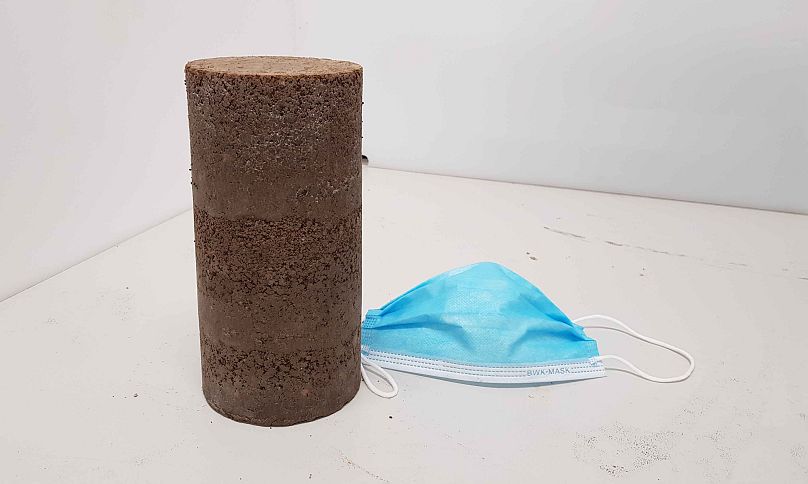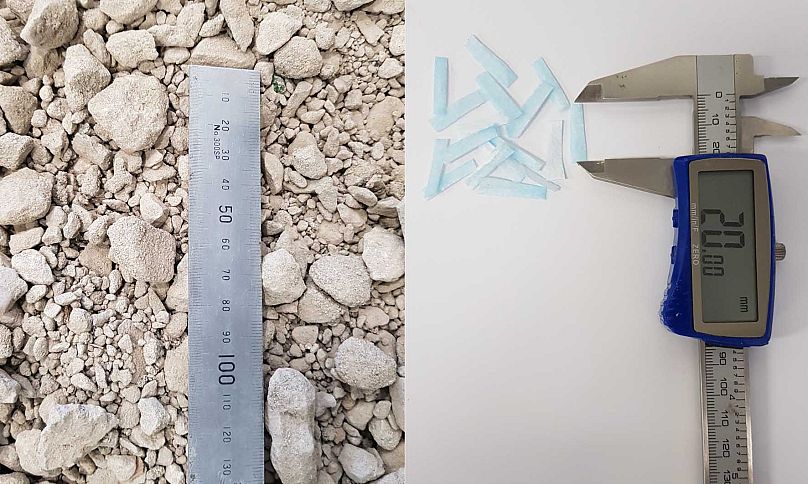Around 6.8 billion face masks are thrown away each day during the pandemic. Is this the solution to repurposing them?
Scientists have found a way to reduce the impact of disposable masks on the environment by turning them into roads.
 ADVERTISEMENT
ADVERTISEMENT
 ADVERTISEMENT
ADVERTISEMENT
An estimated 6.8 billion disposable face masks are being used across the world each day during the pandemic, only to end up in landfill or polluting our oceans.
But a new study by the Royal Melbourne Institute of Technology (RMIT), Australia, has found a way to recycle up to 3 million masks for every 1 kilometre of a two-lane road produced. This could save up to 93 tonnes of waste.
The research is the first of its kind to investigate the potential for using disposable surgical masks in civil construction.
“This initial study looked at the feasibility of recycling single-use face masks into roads and we were thrilled to find it not only works, but also delivers real engineering benefits,” says the author Dr Mohammad Saberian.
Shredded masks turn into tarmac
Without getting too technical, roads are made up of four layers: subgrade, base,
sub-base, and asphalt - the top layer. In the study, shredded face masks were used in the base layers.
The three base layers of a road surface can all be made out of what’s termed ‘recycled concrete aggregate’ (RCA), which is essentially repurposed building rubble.
A mixture of 1 per cent face masks and 99 per cent RCA was found to be the optimal mixture, providing a super durable base material for roads, which meet all of the civil engineering requirements. And what’s more - this mixture actually provides the solution for two environmental challenges.
According to the research, construction, renovation and demolition account for about half of the waste produced annually worldwide. So using some of the waste material from construction to make RCA for roads could also help cut down on the amount of it going to landfill.
Can you catch COVID-19 from used face masks?
While the masks in the experiment were unused, other research has investigated effective methods for disinfecting and sterilising used masks.
A comprehensive review of disinfection technologies found that 99.9 per cent of viruses can be killed with the simple “microwave method”, where masks are sprayed with an antiseptic solution before being microwaved for one minute.
The review also suggests that disinfecting waste PPE at the source (in hospitals/surgeries) is more efficient and could prevent diseases such as COVID-19 being transmitted to subsequent waste handlers.
A circular construction industry
RMIT researchers have also looked into using shredded disposable face masks as an aggregate material for making concrete. This study too had promising early results.
Professor Jie Li leads the RMIT School of Engineering research team, which focuses on recycling and reusing waste materials for civil construction.
“We know that even if these masks are disposed of properly, they will go to landfill or they’ll be incinerated,” he says.
“The COVID-19 pandemic has not only created a global health and economic crisis but has also had dramatic effects on the environment.
“If we can bring circular economy thinking to this massive waste problem, we can develop the smart and sustainable solutions we need.”












